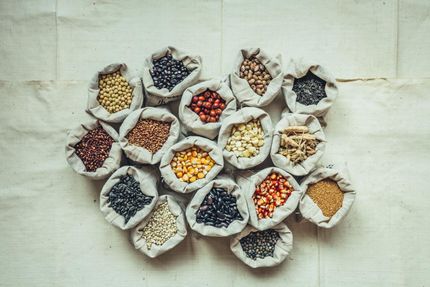Wild, edible, and nutritious! Research and recipes reveal the benefits of regional Turkish plants
Advertisement
Visit any of Türkiye’s regions and you will find diverse plants growing in uncultivated areas such as wetlands and woodlands: wild fennel, catbriers, golden thistle, and knotgrass, to name just a few. These plants have been the subject of ethnographic studies, generally for their medicinal qualities, as far back as 40CE (when a Greek botanist documented their role in Anatolian folk medicine). But although they also have numerous culinary uses (for example in stews, salads, and savory pastries), little data has existed on their high nutrient content – until recently.
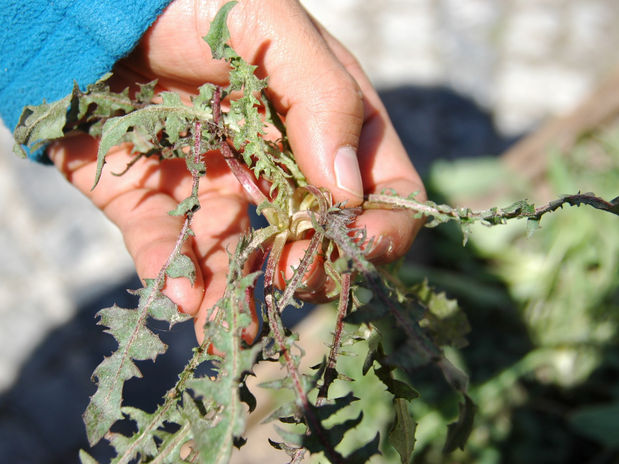
Foraged Golden Thistle is displayed during the Alacati Wild Herb Festival, a celebration of wild, regional biodiversity.
Alliance of Bioversity International and CIAT / D.Hunter
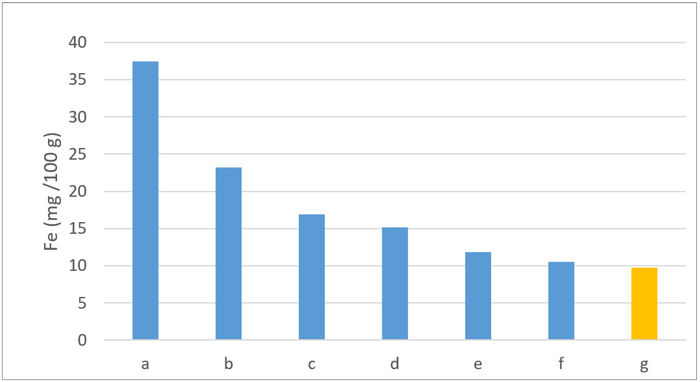
Variation in iron (Fe) concentration in selected plants compared to spinach. Quantities are expressed as mg per 100 g of fresh weight (FW). a. knotgrass (P. cognatum); b. watercress (N. officinale); c. Elm-leaved sumach (Rhus coriaria); d. purple salsify (Tragopogon porrifolius); e. berberis (Berberis crataegina); f. chicory (Cichorium intybus); g. spinach (Spinacia oleracea).
Borelli et. al 2022
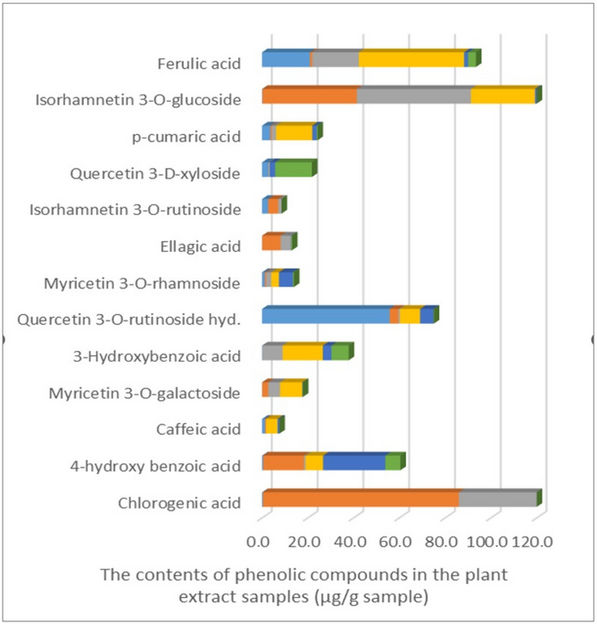
Health promoting phenolic compounds determined in a. foxtail lily (E. spectabilis); b. golden thistle (S. hispanicus); c. fennel (F. vulgare); d. watercress (N. officinale); e. sorrel (R. acetosella); and f. curly dock (Rumex crispus).
Borelli et. al 2022
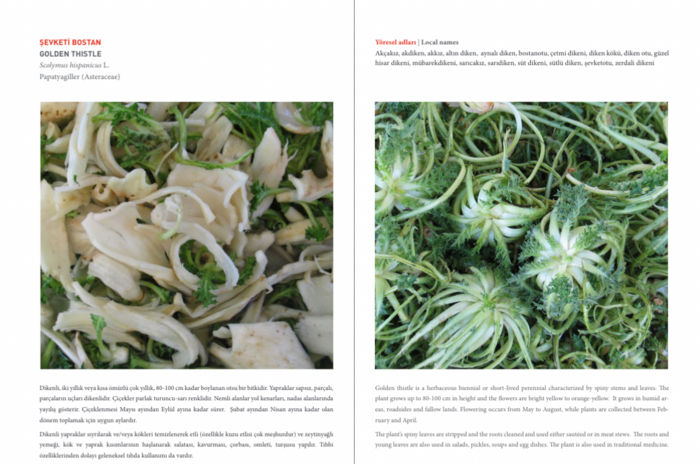
Wild edible plants such as golden thistle appear in traditional and regional dishes.
Alliance of Bioversity and CIAT / Biodiversity for Food and Nutrition / A.Tan and N. Adanacioglu
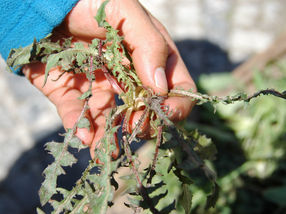
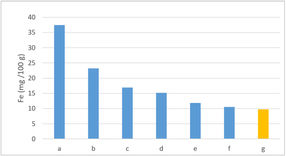

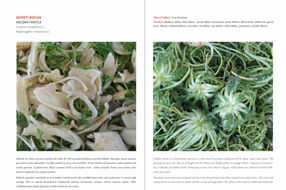
Food composition analysis
Researchers from the Alliance’s Biodiversity for Food and Nutrition Project (2012-19) collaborated with national research centers to identify 39 wild edible plant species that are viable for foraging, consumption, and potential sale in markets. Samples of these plants were collected and either stored or transported for laboratory analysis. In a recent article published in the journal MDPI, the authors report:
“Most wild food plants are excellent sources of minerals, particularly iron, zinc, calcium, and phosphorus…the findings clearly highlight their nutritional value.”
With this evidence added to both FAO's (INFOODS) and Türkiye’s food composition (Türkomp) databases, research partners have been able to demonstrate the link between local biodiversity and food and nutrition security to a policy platform including the Turkish ministries of health, agriculture, environment, and education, and include biodiversity conservation into several policy action plans.
Wild plants for younger generations
Across the regions, the interviewed consumers of wild plants (who were usually collectors themselves) were generally about 50 years of age with only a primary education and employment in agriculture. The researchers recognize that although collecting nutrition data can validate consumption of wild plants, youth engagement is the next step for raising awareness and ensuring that foraging traditions do not disappear over time. Green vocational training for student chefs, school programs, and cultural festivals are all platforms that research partners have tapped into with the aim of reaching out to young people. Another product, years in the making, is a forthcoming recipe book that will show different ways to prepare the plants studied.
"Our horizons have broadened as a result of this project. We have seen the plants and herbs we studied in their natural environment, collected them with our own hands and turned them into a meal. I believe the project will have lasting effects on our professional life.”
- Ahmet Sezer Şanlioğlu, Halim Foçali student, cited in Biodiversity, Food and Nutrition



